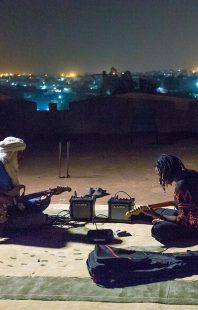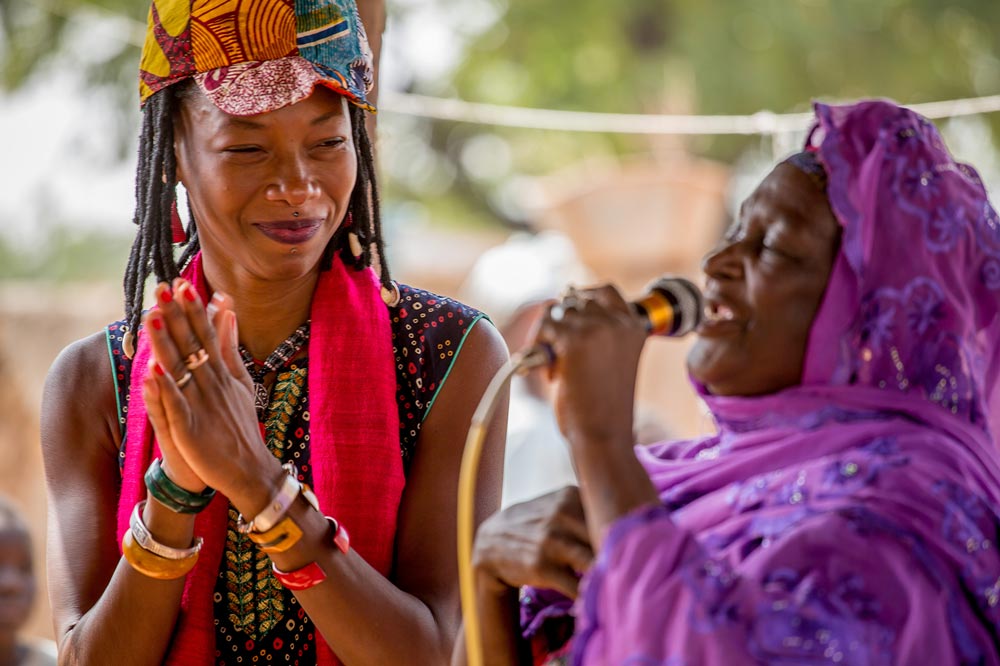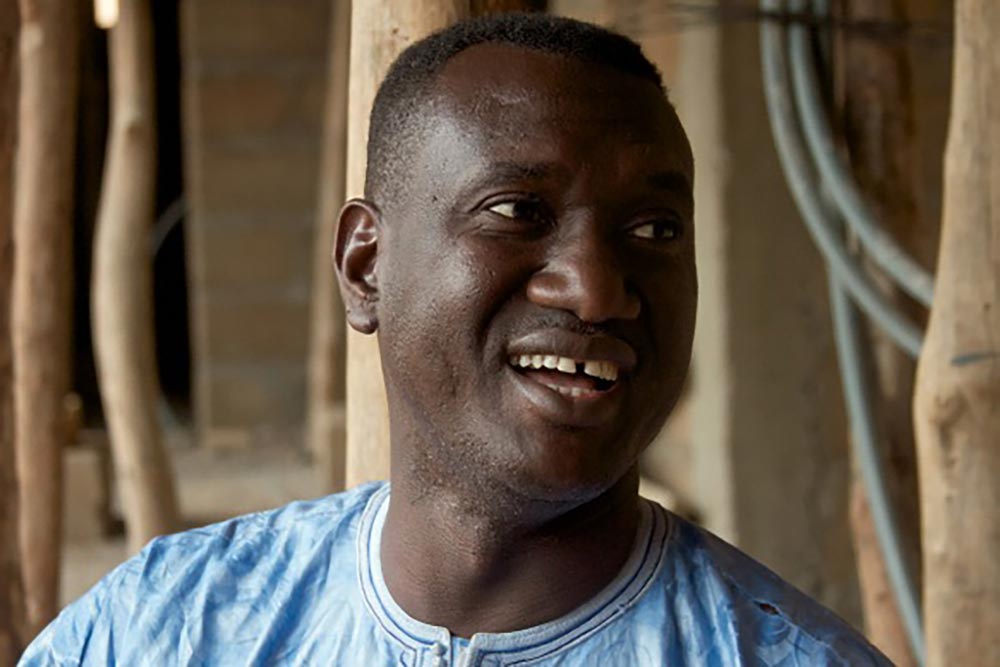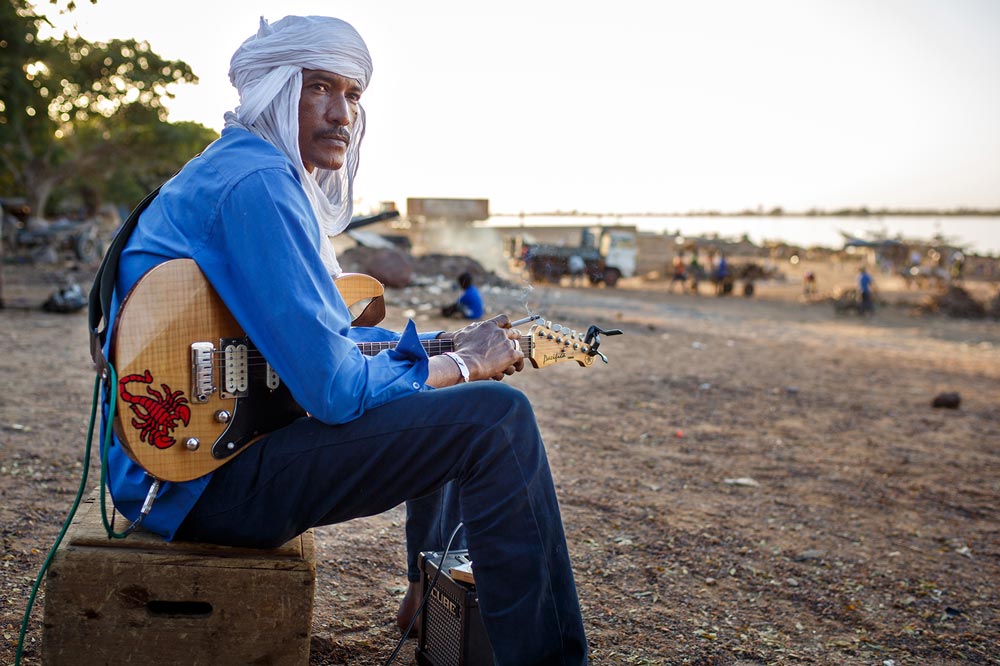
Lutz Gregor er instruktøren, der har lavet dokumentaren “Mali Blues”, der er som et kærlighedsbrev til musikken. En begavet og reflekteret mand, der havde meget på hjerte, hvilket skinner igennem både i hans film, og når man taler med ham. Vi havde så meget at tale om, at vi måtte fortsætte uden for citat, da samtalen ledte over i det lidt for politiske hjørne.
Why did you decide to tell this particular story about music in Mali, when there are so many subjects and problems to shine a light on in this world?
It was a consequence, as always in life, what you did before. I had done two films already in Mali, one in 2008 and one in 2011. During the shooting of the films, we were always listening to the music, meeting people and getting friends. Then we thought about what was next? I was always interested in combining music, politics and stories of people. When we came back from the shooting in October, the political situation in Mali was already quite intense, and by March 2012, there was the coup d’état. At that moment, I met Fatoumata Diawara, because she was giving a concert. We decided to do something about the political situation, the fight of musicians against the prohibition of music, dance and everything the Islamists are opposing. That was the starting point. The things came together at the right moment.

During the documentary Fatoumata says she can’t live without music, do you feel the same way?
Well, I am not a musician, I’m just listening to music and of course love music, but I think music plays an important role in my life. It has changed throughout my life. There were periods with tango, fado and rock music and now it is more classical music, but emotionally I feel very connected to music. This was also one of the reasons to make a film about music. It was never a conscious decision like that, but it just came about and it was the right decision in the end.
I find it interesting how music can touch you so deeply in your soul, without even knowing the words. In Mali they sing in tamachek or Bambara, like Fatoumata, and you don’t know what they are saying if you don’t read the lyrics, but you feel there is something very deep behind. Of course, Mali is a country full of music and in this sense it is very rich culturally. We wanted to show this force, this richness, because normally all the images you get from Africa are about AIDS, corruption, war and refugees. I think we are feed up, we are tired of creating this cliché about the African people. When you meet these people, you can feel their strength in the fight for everyday life. They are fighting to make the music, they are fighting to survive and they are doing very well. We are complaining all the time in Europe, but we are so rich and live in such rich countries. My generation was born after the war and for seventy years it was quite peaceful, at least in northern Europe, but we are complaining anyway. When you meet these people here, they are complaining less and they have much less. We can learn from these people and that is something we wanted to transmit.
I feel there are a lot of images that reinforces the power of music in this film. There is a lot of montages and musical interludes. You see a lot of images, that might be considered beautiful, but then you hear the music that comes from there.
What images do you mean?
Just the fact that they are so poor, but there is one scene that really stuck out to me, is the scene where Bassekou Kouyatéhas created a pedal to add a “Wah”-sound to his instrument. It is so simple and yet so beautiful. Was that your intention with these pauses in the story?
We tried to, I wouldn’t say explain, but go a little bit deeper into the musical styles of Mali, because there is such a big diversity. Fatoumata for instance, comes from a region, which is famous for the way women sing. The same goes for Bassekou Kouyaté, who plays the Ngoni, who says the in the film: “The Blues comes from here, it comes from my village”. Then he also told us, that if you go to the cotton fields, the people working are singing the same melodies that you can find in Mississippi in America. As slaves, they brought the Ngoni, as an instrument to America, which became the banjo, and we brought the melodies and the rhythms that became the blues. You feel there is a deep, deep connection with the blues music in America. He added the “wah, wau” on the Ngoni and also two more strings so it sounds a little more like a guitar now. I was the first to overcome tradition and the way you play your instrument more modern.

There is the obvious question that I have to ask, and that is: How do you make a documentary like this? In a feature will you follow the same process every time, but how do you make a documentary and how long did it take?
It took two years to get the funding. This was the longest time we had spent getting the investment. I went to Mali to find a local team, which can help to open doors. By the end we actually had to choose what musicians and styles we wanted to use. I was in Mali twice to prepare and research. After that, we shot twice for three weeks. It wasn’t such a long time, but we had a clear script. After we had done our research, we tried to script the reality in a sense. Of course, you have to change it, because things happen. It’s a mix of different kinds of scenes. Some are more traditional in a documentary way, where you are watching a scene as it develops, while others are more setup and, then you see what happens in the setup.
What are you most proud of, now that you have made the documentary?
Good question. What am I most proud of? What is most surprising for all of us, is that the film is so successful. It has premiered on lots of festivals, which means that maybe we have touched on something in the film that people like. If you analyze the story to try and say what I’m most proud of, I would say that we have a combination of very strong stories, very strong protagonists, like Fatoumata telling her story of her first marriage, circumcision and her music. You have the political situation in Mali, which is still very fragile. There is no peace in the north. So you have a combination of politics, music and personal stories. This combination works quite well. It isn’t just talks about Islamists and what we hear from the news. We don’t want to hear it again, again. We don’t want to see the same images and stuff like that. All this is not in the film and we tell the story through the personal experience of the people. I think we made the right decisions.

What do you hope people with take with them, if you have any hopes at all?
In which sense?
Do you hope people will take away from this film, that there are other things in Africa, besides poor and sick people or that music is such a powerful thing? As for me I feel it’s a love letter to music.
It’s a love letter to music, but people are so afraid in our world, especially in Germany that people are coming in boats. They are not individuals; it’s just a black mass of people. Talk to them, watch their faces, listen to their stories when they talk about how they fight to make music, which is normal to us. If you talk to them, then you might change and maybe you’ll have less fear, because we as human beings are all the same. You don’t have to build frontiers. People are more important than frontiers that is something we put in our minds, because we are afraid. But if you take their hands, you’ll immediately get touched, and that is what we tried to achieve. Positive stories from Africa.